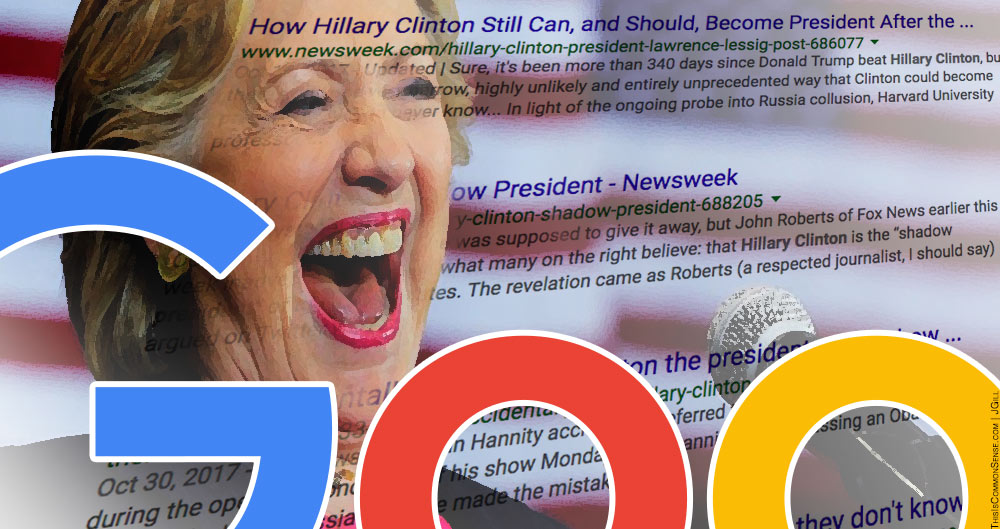There exist many sneaky ways to get other people to do what you want, voluntarily — effectively blurring the line between legitimate persuasion and fraud.
When large, almost unavoidable private companies apply those techniques to targeted groups of voters, that blur might look something very much like election fraud.
Harvard psychologist Dr. Robert Epstein has been studying hidden online persuasion techniques. Interviewed by Tom Woods last Friday, the doctor explained several sub rosa persuasion techniques, especially the fascinating Search Engine Manipulation Effect (SEME), which he says has been replicated in studies by other researchers.
SEME, he argues, is a “genuinely new” way to manipulate masses of people — without them realizing it.
And it sports “one of the largest effects ever to be discovered in the behavioral sciences.” Google, it turns out, can influence voter and consumer behavior merely by ordering search results in specific ways. Going into his first study, he suspected he might discover a 2 percent influence on voter behavior. He got 48 percent, instead.
There is more: not only can Google do this, the behemoth does do this — Epstein has documented that Google did it in the last election.
Supporting, or to the benefit of, Hillary Clinton.
Understandably, Epstein scoffs at the “fake news” panic as something insubstantial in comparison. The potential impact of this online manipulation dwarfs the allegations of Russian influence.
I wonder: Did Mrs. Clinton know that her very special high-tech friends were pressing their very big thumbs onto the scale of democracy?
It seems a very old tech — the Electoral College — effectively counteracted the manipulation.
This time.
This is Common Sense. I’m Paul Jacob.


2 replies on “The Online Manipulation of Democracy”
Thank goodness that such “sub rosa” manipulations rapidly lose much of their impact as soon as their audiences come to recognize them.
At this point I, and hopefully most others, are aware that the majority of internet searches result in the bringing up of actual advertisements and paid for “high listings” before the actual response to the query. .
Thinking and discerning persons have long known that honest reporting and rational commentary are not necessarily easy to find and take a bit of digging. Indeed the “apology” issued by the NYT and the clear bias which has leaked onto the “reporting” by the print and electronic media’s reporting is almost universally understood.
This has led to a greater skepticism and rational questioning of what is being presented as “fact” and led to the disapproval rating of the news providers to fall lower than that of Congress, a very healthy sign in this individual’s opinion.
Reminds me of a clothing store commercial. Their tag line was ‘an educated consumer is our best customer’.
Americans are becoming more aware of such manipulation as you describe and are on the lookout for it. Educating ourselves is our best defense against these sub rosa tactics.